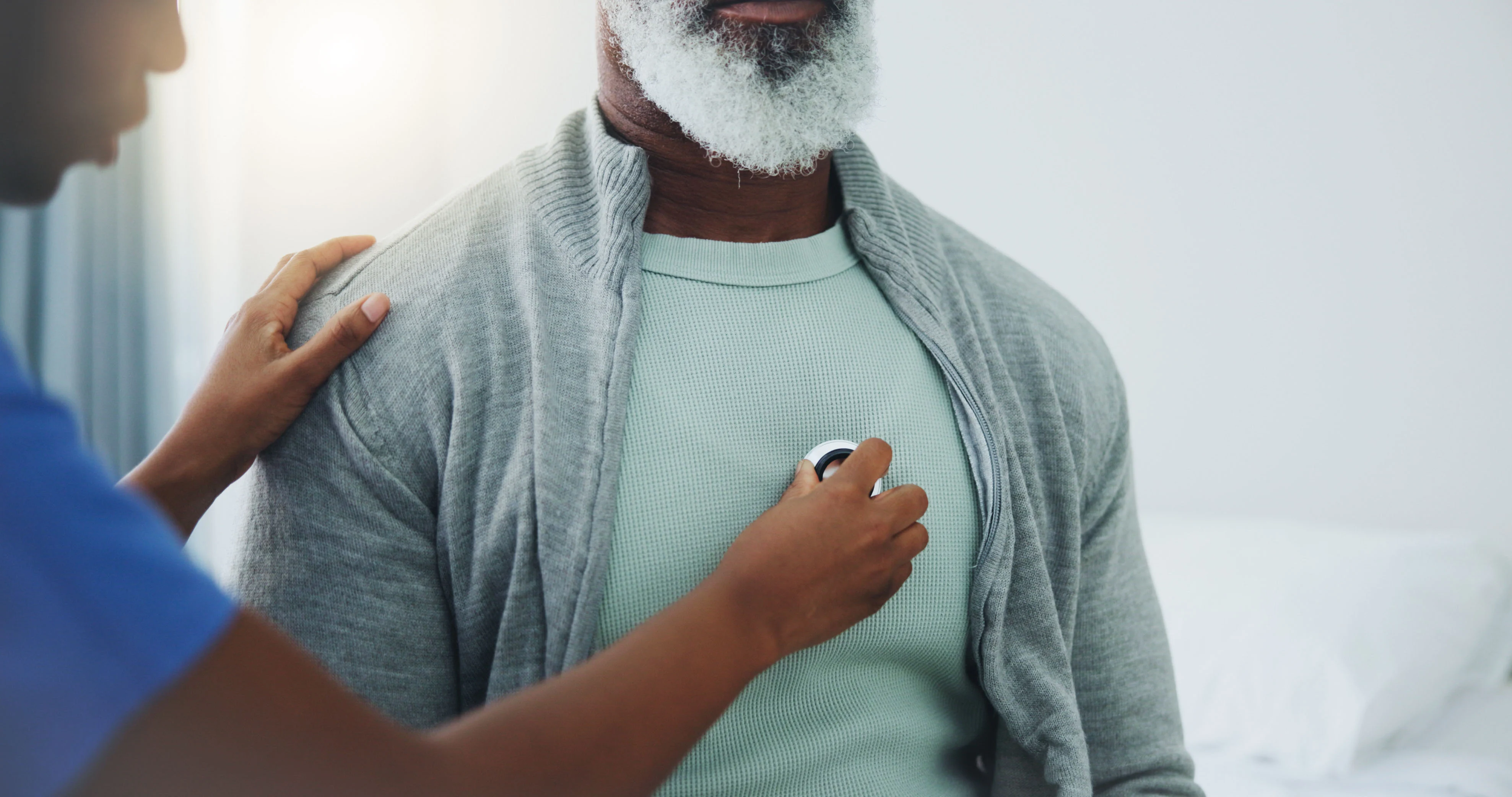Getting the Most From Your Sleep Apnea Treatment Depends on Wearing the Mask That Fits How You Sleep
CPAP (continuous positive airway pressure) is considered the “gold standard” of sleep apnea therapy. That’s why over 8 million Americans use a CPAP device to treat their condition.
But for your device to work effectively, many factors need to be taken into consideration. States Robert Miller, the Apria Healthcare VP of Sleep Business, “Among the most important is the position you sleep in each night.”
The fact is, we all have our favorite sleeping position. But all CPAP masks aren’t suitable for all sleeping positions. That’s why it’s crucial for you to work with your healthcare team to select the mask that’s ideal for you.
The 5 Most Common Masks
CPAP masks come in many combinations, but there are basically five types:
- Nasal masks that fit over your nose only and are lighter than full-face masks
- Nasal pillow masks, which are even lighter and smaller than nasal masks
- Oral masks, which seal around the mouth and require minimal headgear
- Full-face masks that cover your mouth and nose
- Under the nose masks fit comfortably under the nose without entering the nares
All these masks are available in various sizes. The solution to getting the right mask for you is to work with your doctor to decide which type of mask best suits your sleeping position.
Best CPAP Masks for Stomach Sleepers
Of all the sleeping positions, this is the rarest. It also offers some challenges. For example, sleeping on your stomach often presses the mask on your face, which leads to air leaks or mask displacement. Sleeping with a mask in this position can be uncomfortable and can also result in neck and back pain.
For people who sleep on their stomachs, a nasal pillow mask is the most appropriate. Because these masks have a low profile, they are less likely to become dislodged or cause pain.
Apria’s Robert Miller adds, “When choosing a nasal pillow mask, it is important to select the correct size pillow that seals comfortably around the nares.”
Best CPAP Masks for Side Sleepers
Sleeping on your side is the best position for people with sleep apnea. Unlike sleeping on your back or stomach, side sleeping prevents gravity from interfering with your airways.
The challenge for side sleepers: your mask touches the pillow, which can dislodge the mask. That’s why a nasal mask or nasal pillow mask is recommended for side sleepers. These masks are smaller and more flexible to help reduce the risk of displacing the mask while also ensuring a secure seal.
For those who require a full-face mask, choose one that has a sleeker design with smaller cushions that fit securely on the face to make sleeping on your side easier.
Best CPAP Masks for Back Sleepers
If you have sleep apnea, most doctors and sleep specialists do not recommend sleeping on your back since this position can impact your airways due to gravity. You’re also more likely to snore because your tongue and other tissues in your upper airway block the back of your throat.
However, back sleepers have the widest choice of CPAP masks. Full-face, nasal pillow, under the nose masks, and nasal masks are all recommended for back sleepers. Choose a CPAP mask that’s easy to put on or remove during the night. Also, be sure your mask doesn’t have connections at the back of the head, which will interfere with sleeping.
Best CPAP Masks for Mouth Breathers
If you sleep with your mouth open, you need a mask that covers nearly your entire face while allowing you to breathe naturally while you sleep. That’s why a full-face CPAP mask is an excellent choice.
However, some people find it hard to sleep with a full-face mask. A popular alternative is a chin strap paired with a nasal mask or a nasal pillow CPAP mask. This option also helps reduce the side effects of mouth breathing, such as sore throat, tooth decay, and mouth dryness.
Best CPAP Masks for Nose Breathers
Breathing through your nose offers a variety of advantages: it reduces your exposure to foreign substances while heating and humidifying the air you breathe. Plus, it increases your intake of oxygen.
For people with sleep apnea who breathe through their nose, there’s another big advantage: you can use nearly any type of CPAP mask (except an oral mask) to help ensure effective treatment.
Best CPAP Masks for Active Sleepers
If you toss and turn throughout the night, it’s best to choose a CPAP mask that has connections at the top of the head. These feature short, flexible tubes that adjust to your movements to help prevent the hose from becoming entangled.
Best CPAP Masks for People with a Deviated Septum
A deviated septum is a condition where the thin wall between your nasal passages is pushed to one side. For people with this condition, an oral CPAP mask is most appropriate because it prevents them from breathing through their nose.
We’ll Help You Select the Mask of Your Dreams
At Apria, we have a team of Sleep Coaches who work closely with you and your doctor to help select the right CPAP device for your specific needs—one that is based on your sleeping position and the way you breathe. Robert Miller concludes, “The Best CPAP mask is the one that a patient can wear that helps them to achieve their adherence goals! By choosing the most appropriate CPAP mask, you will be more likely to stick with your sleep apnea therapy—and get the quality and quantity of sleep you need to enhance your quality of life.”
Speak to a sleep coach
We’re here to help you manage your sleep apnea. To speak directly to a live sleep coach, call 877-255-2426 or visit www.apria.com/services/sleep-apnea.
Apria Supplies on Schedule program
See how easy it is to receive your sleep apnea supplies by enrolling in Apria’s opt-in program. Learn more now!
References
1. Summer, J. (2022, September 20). How to Choose a CPAP Mask Based On Your Sleep Position. Sleep Foundation.
https://www.sleepfoundation.org/cpap/choosing-cpap-mask-for-your-sleep-position.
2. Fountain, L. (2022, September 16). Best CPAP Masks for Side Sleepers. Sleep Foundation. https://www.sleepfoundation.org/best-cpap-mask/best-cpap-mask-for-side-sleepers.
LEGAL DISCLAIMER: Material in this newsletter is provided for general health education and informational purposes and to provide references to other resources only; it may not apply to you as an individual. While Apria Healthcare believes that the information provided through this communication is accurate and reliable, Apria Healthcare cannot and does not make any such guarantee. It is not intended to be a replacement for professional medical advice, evaluation, diagnosis, services or treatment (collectively, “medical treatment”). Please see your healthcare provider for medical treatment related to you and your specific health condition(s). Never disregard medical advice or delay seeking medical care because of something you have read on or accessed through this website. Reading this newsletter should not be construed to mean that you have a healthcare provider/patient relationship.

.png)



